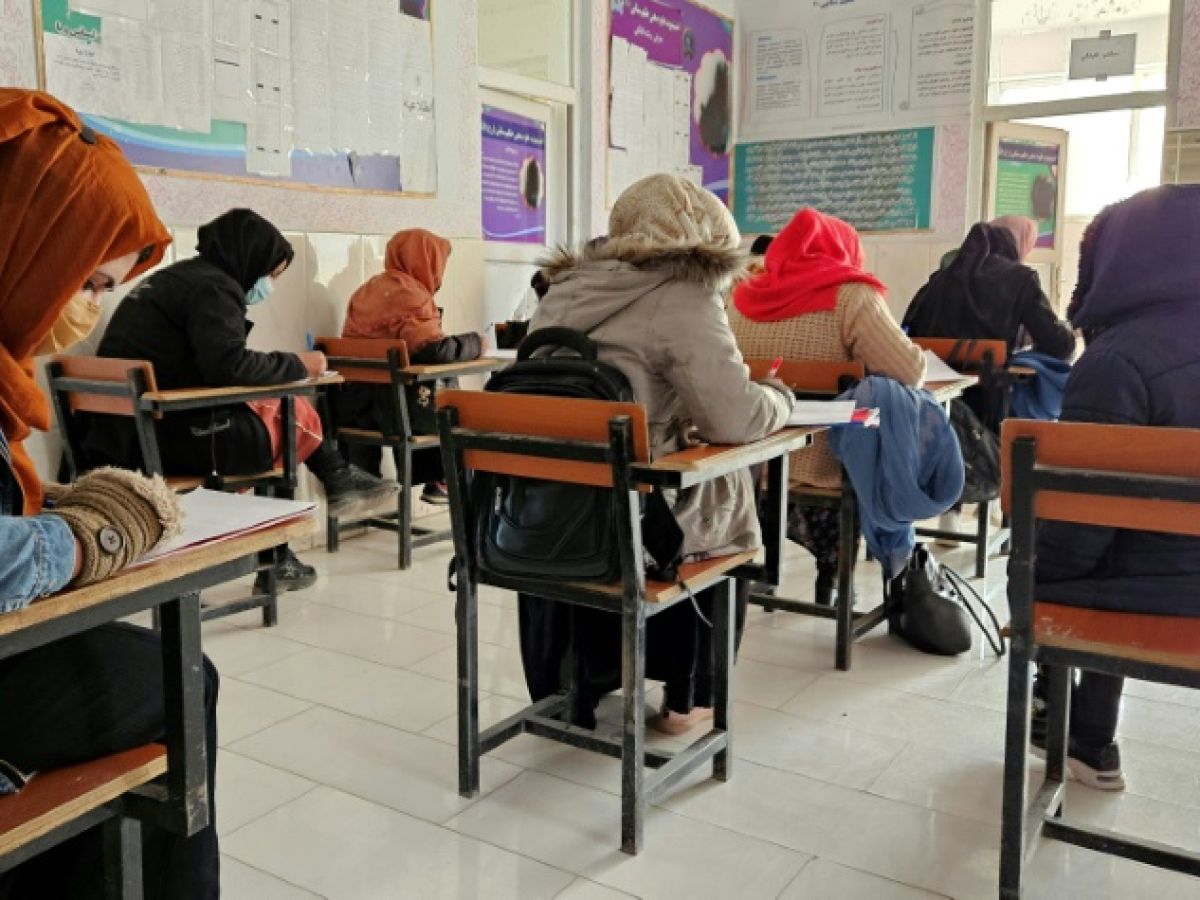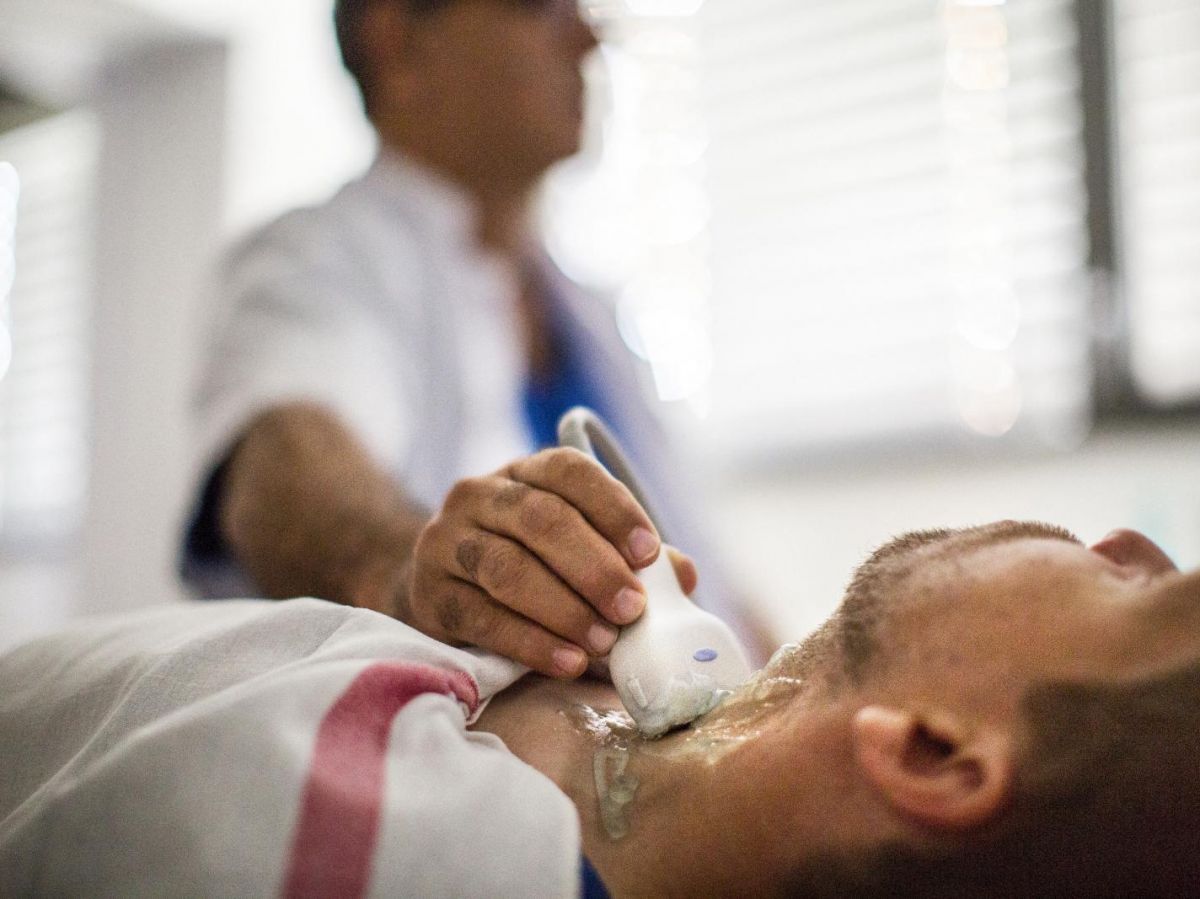The impact may not be visible for "three or four years," but it will be devastating: in Afghanistan, the expulsion of women from medical schools by the Taliban authorities is worrying a health sector already struggling.
In her clinic in Kabul, Najmoussama Shefajo has welcomed and supervised many young graduates who had turned to nursing and midwifery studies after being banned from university two years ago.
But the gynecologist is alarmed: how will she be able to receive all those who will soon come knocking at her door without having completed their training? And, above all, how will she run her establishment if no more women are trained?
"We may not see the impact immediately, but in three or four years, maternal mortality will increase," she predicts, while already in Afghanistan, according to UNICEF, 638 women die for every 100,000 viable births.
This is one of the highest rates in the world and is "particularly due to acute shortages of qualified perinatal caregivers," assures the UN agency.
"More and more babies will be born at home. What about complications? What about operations? There are a lot of care that cannot be done at home," says Dr. Shefajo.
– Maternal mortality on the rise –
The authorities have not announced it officially, but several officials in the sector have told AFP that they have been informed verbally by the Ministry of Health that soon no more women will be able to follow medical training.

According to a source at the ministry, 35,000 women are preparing two-year diplomas in nursing, midwifery, dental assistant, laboratory technician, etc. in more than 150 private institutes and a dozen public schools.
Since this information circulated last week, some institutes have chosen to close immediately. Others have organized exams at full speed, while others still plan to reopen after the winter holidays as planned, unless they receive a written order.
It's hard to do without these future caregivers, says Dr. Shefajo, because "midwives and nurses are like the wings of doctors." "If a bird doesn't have wings, it can't fly," she says.
More down to earth, the head of the UN mission in Afghanistan (UNAMA), Roza Otunbayeva, told the Security Council on Thursday that the project would have "deadly consequences for women and girls in particular, but also for men and boys (...) by depriving Afghans of an operational health system open to all."
The country, with its particularly high fertility rate, is already suffering from a shortage of obstetrician-gynecologists, warns Mickael Le Paih, director of the NGO Doctors Without Borders (MSF) in Afghanistan.
And demand will only increase since in 2022, the authorities claimed that nearly one in two Afghans was under 15 years old.
"You can imagine the impact in several years, when a large proportion of women will reach childbearing age," Le Paih told AFP.
– “In a cage” –
In Kabul, the International Committee of the Red Cross (ICRC) also fears that it is "impossible to ensure sufficient health personnel to provide care to women".

"This would have catastrophic effects," his spokesman Achille Despres told AFP.
For Terje Magnusson Watterdal, director of the Norwegian Afghanistan Committee (NAC), this exclusion will further harm rural areas, where 70,133 million people survive with minimal access to basic services.
His NGO trains female students with the Ministry of Health. While he hopes for schools to reopen soon, he is nevertheless considering redeploying his teachers to clinics for mentoring.
Shefajo and other doctors are considering online courses. But how can students be properly trained without hands-on exercises, she wonders. And even if they could, the certificates would not be valid with the Taliban authorities.
Hadiya, 22, has lost hope. She has just finished her first year of midwifery in Kabul, after having already abandoned studies in computer science and then English, which were successively removed from the possibilities offered to Afghan women.
"We may have midwives today, but medicine is changing every day and they will soon be outdated," predicts the young Afghan. "It's like living in a cage: all the girls are thinking about how to go and study elsewhere to achieve their goals."
And he concluded: "When I see the situation, I tell myself that no child should be born here."

